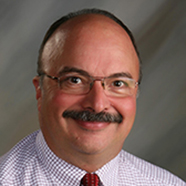World hungers for the ‘Kingdom Fruit’ God asks us to produce in the vineyard

Tim Irwin
By Tim Irwin
Twenty-Seventh Sunday in Ordinary Time/Oct. 8
Isaiah 5:1-7; Psalm 80:9,12,13-14,15-16,19-20; Philippians 4:6-9; Matthew 21:33-43
The Church offers excerpts from the 21st and 22nd chapters of the Gospel according to St. Matthew for the month of October. These passages recount the final teachings of Jesus before his passion, death, and resurrection. Jesus’s relationship with the Chief Priests and the elders of the people sets the context for these teachings.
The Kingdom of God is the central metaphor in the teachings of Jesus. The Kingdom of God refers to Our Lord’s invitation to fall in love with God and experience an abiding intimacy with the Divine. So significant is this metaphor, that Jesus actually employs other metaphors to help explain it. This week’s Gospel illustrates that with the Parable of the Vineyard.
“There was a landowner who planted a vineyard, put a hedge around it, dug a wine press in it, and built a tower. Then he leased it to tenants and went on a journey.” The landowner refers to God the Father and vineyard is the Kingdom of God. The tenants represent the Chief Priests and the elders. A hedge and a tower suggest that we can’t enter without an invitation from the landowner. The vineyard’s crop and the wine press seem to be saying that ultimately, after the final harvest, life here will be one big celebration.
PLAN FAILED
“When vintage time drew near, he sent his servants to the tenants to obtain his produce. But the tenants seized the servants and one they beat, another they killed, and a third they stoned. Again, he sent other servants, more numerous than the first ones, but they treated them in the same way.” This is Jesus’s way of reminding the Chief Priests and the elders that they and their predecessors have a miserable track record when it comes to their treatment of the prophets.
Those to whom the vineyard is “leased” are expected to produce fruit. That’s us. We’re the tenants. The fruit we produce invites others to work in the Kingdom with us.
“Finally, he sent his son to them, thinking, ‘They will respect my son.’ But when the tenants saw the son, they said to one another, ‘This is the heir. Come, let us kill him and acquire his inheritance.’ They seized him, threw him out of the vineyard, and killed him.” Jesus seems to be saying that he knows that they intend to shut him up by killing him. In the short term, their plan would and did succeed; Jesus died on the cross. But their long-term goal to seize his inheritance or shut him up is doomed and surprisingly, they seem to realize it. Jesus asks them, “What will the owner of the vineyard do to those tenants when he comes?”
“He will put those wretched men to a wretched death and lease his vineyard to other tenants who will give him the produce at the proper times.” The passage concludes with Jesus saying, “Therefore, I say to you, the Kingdom of God will be taken away from you and given to a people that will produce its fruit.”
LET’S GET BUSY
Those to whom the vineyard is “leased” are expected to produce fruit. That’s us. We’re the tenants. The fruit we produce invites others to work in the Kingdom with us. The unfortunately popular notion that Jesus is the means to our ends illustrates the contemporary approach to stealing the inheritance. It suggests that we are vacationers and the vineyard, wine press at the ready, is our vacation hotspot. This is simply not the case.
So, let’s get busy. This world hungers for all of the fruits of the Kingdom of God that we can produce. This weekend at the Holy Mass, let us pray that in all of our relationships, we will produce Kingdom Fruit by doing for others the good that we can reasonably do, so as to invite them to join our work in the vineyard — the Kingdom of God.
—
TIM IRWIN teaches at Peoria Notre Dame High School, where he chairs the Theology Department. He is a member of St. Mark Parish in Peoria.





